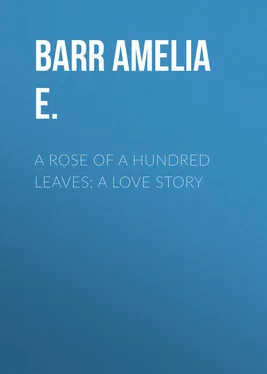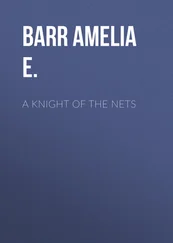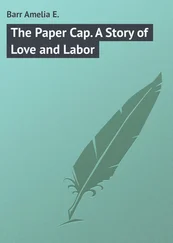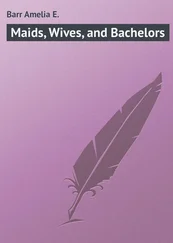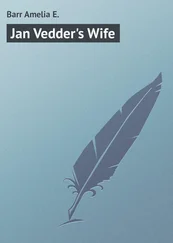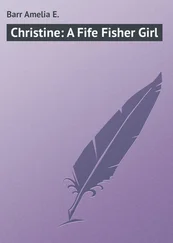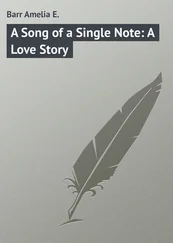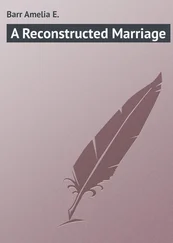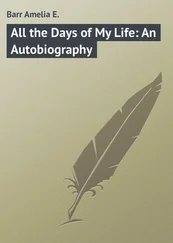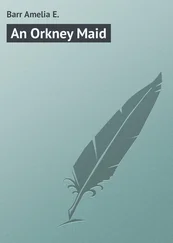Amelia Barr - A Rose of a Hundred Leaves - A Love Story
Здесь есть возможность читать онлайн «Amelia Barr - A Rose of a Hundred Leaves - A Love Story» — ознакомительный отрывок электронной книги совершенно бесплатно, а после прочтения отрывка купить полную версию. В некоторых случаях можно слушать аудио, скачать через торрент в формате fb2 и присутствует краткое содержание. Жанр: foreign_prose, Зарубежные любовные романы, на английском языке. Описание произведения, (предисловие) а так же отзывы посетителей доступны на портале библиотеки ЛибКат.
- Название:A Rose of a Hundred Leaves: A Love Story
- Автор:
- Жанр:
- Год:неизвестен
- ISBN:нет данных
- Рейтинг книги:4 / 5. Голосов: 1
-
Избранное:Добавить в избранное
- Отзывы:
-
Ваша оценка:
- 80
- 1
- 2
- 3
- 4
- 5
A Rose of a Hundred Leaves: A Love Story: краткое содержание, описание и аннотация
Предлагаем к чтению аннотацию, описание, краткое содержание или предисловие (зависит от того, что написал сам автор книги «A Rose of a Hundred Leaves: A Love Story»). Если вы не нашли необходимую информацию о книге — напишите в комментариях, мы постараемся отыскать её.
A Rose of a Hundred Leaves: A Love Story — читать онлайн ознакомительный отрывок
Ниже представлен текст книги, разбитый по страницам. Система сохранения места последней прочитанной страницы, позволяет с удобством читать онлайн бесплатно книгу «A Rose of a Hundred Leaves: A Love Story», без необходимости каждый раз заново искать на чём Вы остановились. Поставьте закладку, и сможете в любой момент перейти на страницу, на которой закончили чтение.
Интервал:
Закладка:
Fenwick went away in the afternoon, and his adieus were mostly made to the Squire. He had done his best to win his favour, and he had been successful. He left Seat-Ambar under an engagement to return soon and try his skill in wrestling and pole-leaping with Brune. Aspatria knew he would return: a voice which Fenwick’s voice only echoed told her so. She watched him from her own window across the meadows, and up the mountain, until he was lost to her vision.
She was doubtless very much in love, though as yet she had not admitted the fact to herself. The experience had come with a really shocking swiftness. Her heart was half angry and half abashed by its instantaneous surrender. Two circumstances had promoted this condition. First, the singular charm of the man. Ulfar Fenwick was unlike any one she had ever seen. The squires and gentlemen who came to Seat-Ambar were physically the finest fellows in England, but noble women look for something more than mere bulk in a man. Sir Ulfar Fenwick had this something more. Culture, travel, great experience with women, had added to his heroic form a charm flesh and sinew alone could never compass. And if he had lacked all other physical advantages, he possessed eyes which had been filled to the brim with experiences of every kind, – gray eyes with pure, full lids thickly fringed, – eyes always lustrous, sometimes piercingly bright. Secondly, Aspatria had no knowledge which helped her to ward off attack or protract surrender. In a multitude of lovers there is safety; but Fenwick was Aspatria’s first lover.
He rode hard, as if he would ride from fate. Perhaps he hoped at this early stage of feeling to do as he had often done before, —
To love – and then ride away.
He had also a fresh, pressing anxiety to see his sister, who was Lady of Redware Manor. Seven years – and much besides years – had passed since they met. She was his only sister, and ten years his senior. She loved him as mothers love, unquestioningly, with miraculous excuses for all his shortcomings. She had been watching for his arrival many hours before he appeared.
“Ulfar! how welcome you are!” she cried, with tears in her eyes and her voice. “Oh, my dear! how happy I am to see you once more!”
She might have been his only love, he kissed and embraced and kissed her again so fondly. Oh, wondrous tie of blood and kinship! At that moment there really seemed to Ulfar Fenwick no one in the whole world half so dear as his sister Elizabeth.
He told her he had lost his way in the storm and been detained by Squire Anneys; and she praised the Squire, and said that she would evermore love him for his kindness. “I met him once, at the Election Ball in Kendal. He danced with me; ‘we neighbour each other,’ you see; and they are a grand old family, I can tell you.”
“There is a younger brother, called Brune.”
“I never saw him.”
“A sister also, – a child yet, but very handsome. You ought to see her.”
“Why?”
“You would like her. I do.”
“Ulfar, there is a ‘thus far’ in everything. In your wooing and pursuing, the line lies south of Seat-Ambar. To wrong a woman of that house would be wicked and dangerous.”
“Why should I wrong her? I have no intention to do so. I say she is a lovely lady, a great beauty, worthy of honest love and supreme devotion.”
“Such a rant about love and beauty! Nine tenths of the men who talk in this way do but blaspheme Love by taking his name in vain.”
“However, Elizabeth, it is marriage or the Spanish colonies for me. It is Miss Anneys, or Cuba, New Orleans, and Mexico. Santa Anna is a supreme villain; I have a fancy to see such a specimen.”
“You are then between the devil and the deep sea; and I should say that the one-legged Spaniard was preferable to the deep sea of matrimony.”
“She is so fair! She has a virgin timidity that enchants me.”
“It will become matronly indecision, or mental weakness of will. In the future it will drive you frantic.”
“Her sweet sensibility – ”
“Will crystallize into passionate irritation or callous opposition. These childlike, tender, clinging maidens are often capable of sudden and dangerous action. Better go to Cuba, or even to Mexico, Ulfar.”
“I suppose she has wealth. You will admit that excellence?”
“She is co-heir with her brothers. She may have two thousand pounds a year. You cannot afford to marry a girl so poor.”
“I have not yet come to regard a large sum of money as a kind of virtue, or the want of it as a crime.”
“Your wife ought to represent you. How can this country-girl help you in the society to which you belong?”
“Society! What is society? In its elemental verity it means toil, weariness, loss of rest and health, useless expense, envy, disappointment, heart-burnings, – all for the sake of exchanging entertainments with A and B, C and D. It means chaff instead of wheat.”
“If you want to be happy, Ulfar, put this girl out of your mind. I am sure her brothers will oppose your suit. They will not let their sister leave Allerdale. No Anneys has ever done so.”
“You have strengthened my fancy, Elizabeth. There is a deal of happiness in the idea of prevailing, of getting the mastery, of putting hindrances out of the way.”
“Well, I have given you good advice.”
“There are many ‘counsels of perfection’ nobody dreams of following. To advise a man in love not to love, is one of them.”
“Love!” she cried scornfully. “Before you make such a fuss about the Spanish Colonies and their new-found freedom, free yourself, Ulfar! You have been a slave to some woman all your life. You are one of those men who are naturally not their own property. A child can turn you hither and thither; a simple country girl can lead you.”
He laughed softly, and murmured, —
“There is a rose of a hundred leaves, But the wild rose is the sweetest.”
CHAPTER II.
FORGIVE ME, CHRIST!
The ultimatum reached by Fenwick in the consideration of any subject was, to please himself. In the case of Aspatria Anneys he was particularly determined to do so. It was in vain Lady Redware entreated him to be rational. How could he be rational? It was the preponderance of the emotional over the rational in his nature which imparted so strong a personality to him. He grasped all circumstances by feeling rather than by reason.
In a few days he was again at Seat-Ambar. Aspatria drew him, as the candle draws the moth which has once burned its wings at it. And among the simple Anneys folk he found a hearty welcome. With Squire William he travelled the hills, and counted the flocks, and speculated on the value of the iron-ore cropping out of the ground. With Brune he went line-fishing, and in the wide barns tried his skill in wrestling or pole-leaping or single-stick. He tolerated the rusticity of the life, for the charming moments he found with Aspatria.
No one like Ulfar Fenwick had ever visited Ambar-Side. To the young men, who read nothing but the Gentleman’s Magazine and the Whitehaven Herald, and to Aspatria, who had but a volume of the Ladies’ Garden Manual, Notable Things, her Bible and Common Prayer, Fenwick was a book of travel, song, and story, of strange adventures, of odd bits of knowledge, and funny experiences. Things old and new fell from his handsome lips. Squire William and Brune heard them with grave attention, with delight and laughter; Aspatria with eyes full of wonder and admiration.
As the season advanced and they grew more familiar, Aspatria was thrown naturally into his society. The Squire was in the hay-field; Brune had his task there also. Or they were down at the Long Pool, washing the sheep, or on the fells, shearing them. In the haymaking, Aspatria and Fenwick made some pretence of assistance; but they both very soon wearied of the real labour. Aspatria would toss a few furrows of the warm, sweet grass; but it was much sweeter to sit down under the oak-tree with Fenwick at her side, and watch the moving picture, and listen to the women singing in their high shrill voices, as they turned the swaths, the Song of the Mower, and the men mournfully shouting out the chorus to it, —
Читать дальшеИнтервал:
Закладка:
Похожие книги на «A Rose of a Hundred Leaves: A Love Story»
Представляем Вашему вниманию похожие книги на «A Rose of a Hundred Leaves: A Love Story» списком для выбора. Мы отобрали схожую по названию и смыслу литературу в надежде предоставить читателям больше вариантов отыскать новые, интересные, ещё непрочитанные произведения.
Обсуждение, отзывы о книге «A Rose of a Hundred Leaves: A Love Story» и просто собственные мнения читателей. Оставьте ваши комментарии, напишите, что Вы думаете о произведении, его смысле или главных героях. Укажите что конкретно понравилось, а что нет, и почему Вы так считаете.
